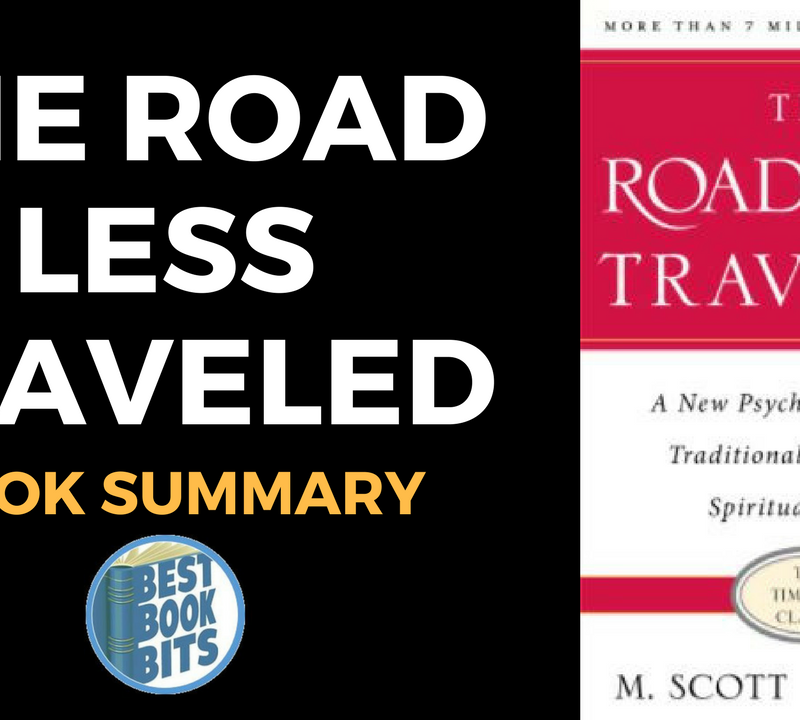★DOWNLOAD THIS FREE PDF SUMMARY HERE
? MY FREE BOOK TO LIVING YOUR DREAM LIFE”
? SPONSOR BESTBOOKBITS BY USING PATREON
? SUPPORT BESTBOOKBITS BY CLICKING THE LINKS BELOW
- 150 PDF Summaries
- Coaching Program
- Subscribe to My Channel
- Website
- Spotify
- Book Club
- Mailing List
- The purpose of life is happiness.
- Happiness is determined more by the state of one’s mind than by one’s external conditions, circumstances, or events, at least once one’s basic survival needs are met.
- Happiness can be achieved through the systematic training of our hearts and minds, through reshaping our attitudes and outlook.
- The key to happiness is in our own hands.
- Purpose of life: to seek HAPPINESS, by lingering on the things that make you happy and eliminating the things that make you suffer.
- Sources of happiness – it’s based on:
- a peaceful state of mind: how we perceive ourselves –> inner compassion and serenityunaffectedby changes in external material circumstances –> calm, peace of mind –> inner discipline to achieve it;
- not (only) on external events: health, wealth, friendships/relationships, affections….
- If I have peace of mind, I don’t care for external material things –> discipline to be happy in the moment, enjoy the moment, carpe diem.
- Instead of trying to have what we want, let’s want what we have: contentment! –> inner sense of worth–> liberation = no sense of suffering.
- Ask myself: “WILL THIS ACTION BRING ME HAPPINESS (in the long run)?”
- Learn to eliminate negative emotions and negative states of mind; and increasethe positive
- Don’t miss the opportunity: the law of cause and effect implies that we have to eliminate the causes for unhappiness (negative emotions) –> classify causes in positive and negative –> we need to learn how to recognize them –> positive emotion: compassion = loving kindness–> use each day positively, every moment! And at night critique the day to see if I took full advantage of it (with the purpose of improving the next day, not for self-blame!) –> self-disciplined mind to act as a role model. The power is in my own hands.
- Feelings of love, affection, closeness, and compassion bring happiness –> “Buddha nature”. Be gentle, not aggressive.
- Aggressions come because of frustration to achieve/get love.
- Worthwhile activities (proper utilization of time): we work on the future on the basis of the HOPE that we’ll be here tomorrow! SERVE others in order to value life. Be a good person, with good positive feelings: compassion, serenity, love.
- You never feel lonely if you have compassion: belief in opennessto others, to give and receive affection, to feel untouched by rejection, judgment, fear, anger, doubt, indecision.
- Self-reliance is actually an illusion: we all depend on others (for food, clothes, etc.) –> we’re all interconnected!
- Relationships need to be based on mutual respect. Appreciate the other and their dignity, have genuine affection but don’t idealize the other (more is less…).
- Compassion = state of mind that’s non-violent, non-harming and non-aggressive. Let others be free. Be committed, responsible, and respectful of others.
- Start with the wish to be free of suffering, and then embrace others in this wish.
- Compassion is different from attachment (which implies the tendency of controlling others – especially friends and loved ones). Compassion is towards everybody(as human beings), not only friends. Don’t be attached: everybody strives to be happy, regardless of being my friend or not –> genuine, universal compassion towards the right of other people to be free from suffering.
- By understanding suffering and embracing the suffering of others in myself, with empathy, I can generate compassion (nobody wants to suffer: reflect on the suffering of others and apply it to myself –> compassion is generated).
- Knowthat there are problems in life that are inevitable (ill health, old age, death) –> suffering and fear arise by wanting to struggle against the sad things of life –> we instead need to ACCEPT them as a part of life.
- Directly confront old age, ill health, and death. Preparefor them and they won’t be so shocking.
- Suffering: accept it as natural –> be more tolerant towards it as part of a life that hasn’t reached illumination yet. Remove the causesof suffering: ignorance, cravings, and hatred (know yourself).
- Death of others: carry on their wishes, and check your feelingsin order to keep living in happiness. Don’t get depressed: others had and have similar or worse tragedies.
- Don’t fear, avoid or reject suffering; it’s natural and needs to be dealt with:
- Don’t self-create suffering!
- I’m responsiblefor my own suffering and can do something about it. Don’t be a victim.
- Don’t think/act negatively. Think positive. Choose HOW TO respond to a difficult event: I’m not the only one who’s suffering this; I CAN find a solution.
- On unfairness: it’s the result of the law of attraction –> I’m still responsible! Often unfairness, when contextualizedand with detachment (e.g. noisy kids & his father doesn’t say anything because their mom died…) can be reframed and accepted without feeling hurt and suffering. Don’t blame myself or others.
- Suffering = resistance to change(most of the time; more in general: a situation that has an outcome that is not as we want(ed) –> it generates anger, frustration, suffering…) –> but life is always changing!
- Think on events from different perspectives, to reach calmness of mind. Everything is an opportunity.
- Law of attraction for things related to me.
- Law of attraction (invoked by others) for things related to others (e.g. loss or ill health of others: I didn’t “ask” for it, they did…).
- Others have suffered more and survived (e.g. Jewish in concentration camps).
- –> Be flexible and adaptable (but know what you want!).
- End the suffering by finding the meaningof it: hope that my suffering is of help to others so that they won’t go through the same suffering again (e.g. Jesus)…
- Pain (physical: good to protect ourselves) ≠ suffering (mental: to connect with others).
- Visualization/meditation: open ourselves to others’ suffering. Don’t be selfish. Wish and transmute my positive qualities to people who are suffering: we’re all human beings –> COMPASSION–> learn(suffering and its causes: habits to change), conviction (of change towards positive thoughts), determination (to change), action, effort (towards enthusiasm and sense of urgency to change [life is short!]).
- Bad things contain good… Control them by knowing them, don’t be controlled by them.
- Negative behaviour = destructive–> don’t do it. Discomfort (go out of comfort zones) to condition myself to change (out of routine).
- Change and mental development takes time and a consistent effort.
- Take the long term view.
- Learn and train to go from negative (anger, hatred, attachment) to positive (love, compassion, forgiveness) emotions.
- Negative emotions destroy us, and they have no valid foundationsdeep down: they’re based on ignorance –> WISDOM FACTOR: learn that negative emotions are caused by ignorance.
- Cultivate the positiveto counteract the negative, and the positive will beat the negative whenever I feel negative emotions. Concentration and discipline.
- RESHAPE THE NEGATIVE: anger brings generally to hatred and let you unable to judge properly. Hatred is my only real enemy, and works 24hrs/day against me! –> leave him no opportunity –> cultivate the antidotes: patience and tolerance–> I’m fighting and seeking victory and I might lose sometimes. Generally directly confront and analyze anger and hatred. Is it an appropriate response? Is it constructive or not? Cultivate the positive!
- If I get hurt by someone, and on top I get mad, I add destruction over me! –> be strong and think positive: humility (you can retaliate, but you don’t) and patience).
- Sometimes strong countermeasures need to be taken if people are hurting us, but take them always out of compassion towards the others –> patience and tolerance that bring to forgiveness.
- Getting angry = I lose my composure and peace of mind, and I become ugly and unpleasant (as others do when they get angry…): visualize it in order not to get mad again!
- Be determined notto let others make me angry (or suffer), it doesn’t matter what they do or how they treat me. It only matters the result I want (have it clear): peace of mind + reaching my current objective.
- All people have the Buddha nature (in potential) –> it’s not possible to have self-hatred, or to self-punish ourselves. Besides, we can change what we don’t like in ourselves…!
- Think of the illuminations I had –> try to have more and keep the thought in my mind! And keep it also and especially when with others, even if they didn’t reach it yet.
- Spirituality: to benefit one-self (calmness, happiness) –> each religion is fine and should make people and the world better.
- Consider prayers as remindersof my values (compassion, forgiveness, kindness, caring), everyday (to start right); but don’t make it a nightmare… =) Then I can pray 24hrs/day by LIVING following my values. Translate disciplined state of mind into one’s daily actions.
- Meditate on my mind: feel it! Meditate: have NO thoughts but be mindful. Feel my conscience in the NOW (in a neutral state). Breathe…
★DOWNLOAD THIS FREE PDF SUMMARY HERE
? MY FREE BOOK TO LIVING YOUR DREAM LIFE”
? SPONSOR BESTBOOKBITS BY USING PATREON
? SUPPORT BESTBOOKBITS BY CLICKING THE LINKS BELOW













